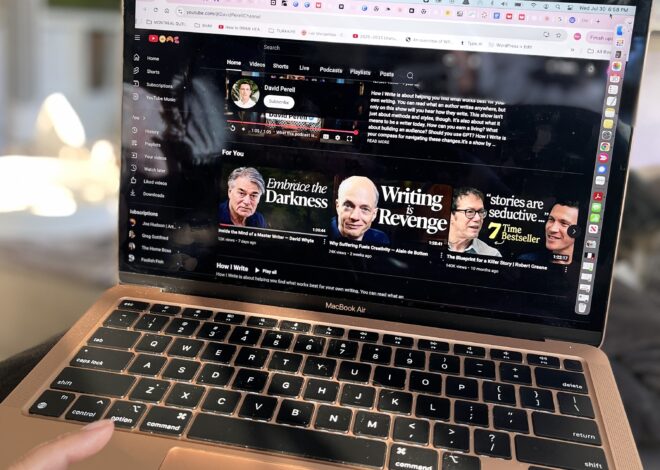
The Invisible Drain: Why We Keep Choosing Unsupportive Friends (And How to Stop)
Have you ever walked away from a friend’s text feeling… heavier? Like something was quietly pulled from you that you can’t quite name?
The Quiet Recognition: When Friendships Reveal Our Deepest Patterns
There’s something profoundly unsettling about scrolling through your phone and feeling that small knot form in your stomach when a particular name appears. You love them, genuinely. Yet somewhere in the deeper chambers of your heart, you know this friendship extracts more than it offers. You recognize yourself as the perpetual listener, the one who amplifies their victories while your own are met with distracted acknowledgment before the conversation inevitably returns to their world.
If this recognition feels familiar, you’re participating in one of humanity’s most common yet least discussed experiences. And perhaps more significantly, you’re beginning to witness something that has been operating beneath your conscious awareness for years.
We are about to explore one of the most profound patterns in human connection: how we unconsciously gravitate toward relationships that mirror our earliest emotional landscapes, and why liberation from these patterns requires such courage. The uncomfortable truth is that once you truly see this dynamic, you cannot return to the innocence of not knowing. And in that seeing lies both your vulnerability and your power.
The Uncomfortable Territory of the Familiar
Rarely do we consciously decide to cultivate friendships that leave us feeling diminished, overlooked, or emotionally depleted. Yet if you’ve ever found yourself chronically in the role of supporter without receiving equivalent care, if you’ve learned to hesitate before sharing joy because you anticipate its dismissal, you’re experiencing something far more complex than unfortunate social luck.
Many of us unconsciously construct relationships that echo something recognizable, even when that familiarity comes at the expense of our wellbeing.
The nervous system, in its ancient wisdom, often mistakes the familiar for the safe. We find ourselves drawn to emotional territories we’ve navigated before, not because they serve us, but because they require no new map. This is how we end up choosing the friend who remains perpetually unavailable, the one who transforms every conversation into a catalog of complaints, the one whose celebration of our growth feels conditional on our remaining smaller than they are.
Yet there’s something almost sacred about the moment you recognize this pattern. It’s the beginning of a different kind of relationship with yourself.
What Nourishing Connection Actually Feels Like
When I reflect on friendships that truly nourish, I notice they create space for both people to exist as complete, evolving beings. These relationships aren’t perfect, but they possess a quality of rest, of natural joy, of mutual growth. They don’t feel like battlefields where you must defend your right to exist fully.
In these connections, there exists a natural emotional reciprocity. You feel genuinely heard, not merely utilized as a receptacle for someone else’s overflow. When you share something vulnerable, it’s met with presence rather than an immediate pivot back to their experience. They carry genuine curiosity about your inner world and create space when you speak.
Your victories are celebrated with full-hearted presence. There’s no subtle undermining, no comparative commentary, no deflection of your joy back into their narrative. They possess the capacity to witness your expansion without feeling threatened by it.
There’s an emotional safety that allows for the full spectrum of human feeling. You can express anger, sadness, fear, or joy without punishment or judgment. You don’t find yourself editing your truth to make them comfortable, and your boundaries are honored without passive-aggressive retaliation.
Consistency becomes a hallmark rather than an exception. They appear when they say they will, their words align with their actions, and they don’t vanish until they need something. When they inevitably make mistakes, they take responsibility rather than making you responsible for managing their reactions.
Perhaps most significantly, they’re invested in their own growth and welcome yours. They support your evolution even when it means the relationship itself must transform. They’re not attached to keeping you small or stagnant for the sake of their own comfort.
In their presence, you don’t have to earn approval through usefulness, entertainment, or constant availability. You can be quiet together, authentic, playful, or raw. You’re loved for your essence, not for the role you fulfill in their emotional ecosystem.
The Subtle Erosions We’ve Learned to Accept
The relationships that drain us often masquerade as intimacy, but they leave you feeling tired, anxious, or strangely disconnected from yourself. The patterns are usually subtle initially and can be particularly difficult to recognize if you’ve been conditioned to be the helper, the empath, the one who holds space for others.
There’s the friend who uses you as an emotional dumping ground rather than engaging in true sharing. You leave conversations feeling heavier, as if you’ve absorbed their unprocessed emotions without any reciprocal care for your own inner world.
Some friends engage in subtle forms of diminishment, downplaying your insights or accomplishments through sarcasm or comparison. Your success or transformation is met with uncomfortable silence or sideways commentary that leaves you questioning whether you should have shared at all.
Others remain chronically centered in their victimhood, discussing their trauma endlessly while showing no genuine movement toward healing. Every interaction circles back to their pain, and even when you offer something personal, it becomes a launching pad for their next installment of suffering.
Boundary-pushing becomes another familiar pattern. They make you feel guilty for taking space or time for yourself, expecting constant availability and interpreting your self-care as personal rejection. They may withdraw emotionally, sulk, or punish you when you attempt to draw healthy lines.
Unspoken contracts govern these relationships. You’re not permitted to change or grow. If you evolve, it threatens the established dynamic. You’re locked into a role—caretaker, cheerleader, emotional fixer—and breaking character creates friction. The relationship only functions when you’re giving more than you receive.
Perhaps most telling is the energetic aftermath. You feel physically tense, emotionally dysregulated, or strangely agitated after interacting with them. You hesitate to share good news because you know it will be met with dismissal, competition, or silence. Your presence feels mined for emotional survival rather than celebrated for mutual connection.
The Psychology of Staying
We remain in these dynamics because they feel familiar. We stay because we’ve been conditioned to help, to be useful, to make others feel acceptable. We continue because we were never taught that we’re allowed to expect more.
We persist because it has always felt like our responsibility to ensure other people’s emotional equilibrium.
But here lies a profound realization: support is not synonymous with sacrifice. Kindness is not equivalent to self-abandonment.
The Contemplation of Choice
This isn’t about coldly severing connections or rendering harsh judgments. This is about returning to self-trust, about recognizing that the emotional climate of your relationships matters profoundly. It’s about choosing friends whose love nourishes rather than depletes.
I find myself contemplating questions like: Around whom do I feel most authentically myself? Who creates genuine space for my joy without needing to redirect or diminish it? Who supports my growth even when it means I become different than who I was when we met?
And equally important: Where do I feel constrained from growing? Where do I feel obligated to perform emotional labor? Where do I consistently leave feeling smaller, even when I arrived with love?
The Invitation of Sunlight
If you’re recognizing these patterns for the first time, I invite gentleness with yourself. Many of us are only now awakening to the ways we’ve been conditioned to accept imbalance as normal.
But once you experience a friendship that feels like sunlight—warm, nourishing, life-giving—there’s no returning to relationships that require you to dim your light.
You’re allowed to desire friendships that feel like shared breath, like warm refuge, like true reflection. You’re allowed to outgrow connections that require your silence, your caretaking, or your contraction.
This might be your invitation to begin again. To choose presence over performance. To choose expansion over obligation. To choose friendships that feel like coming home to yourself.
The Body’s Quiet Wisdom
I wonder what would happen if you paused right now and considered your recent interactions. As you think of different friends, what does your body tell you? Does your chest tighten with certain names? Do you feel lighter with others? Is there a part of you that wants to avoid certain conversations entirely?
Your nervous system has been keeping score this entire time, cataloging which relationships nourish and which ones extract.
Perhaps you already know who feels safe and who feels draining. Perhaps the only remaining question is what you plan to do with this knowledge.
The Reflection in the Mirror
Our friendships serve as mirrors, reflecting back how we value ourselves. When we settle for relationships that drain us, we communicate to the universe that we don’t believe we deserve better. But when we choose to surround ourselves with people who truly see us, celebrate us, and grow alongside us, everything shifts. We stop contracting. We stop performing. We stop offering pieces of ourselves to people who were never meant to hold them.
The path forward isn’t about perfection or dramatic endings. It’s about honouring the quiet voice within you that has always known the difference between love that lifts and love that takes.
Your future self exists on the other side of trusting that voice, surrounded by friendships that feel like coming home to who you’ve always been.
This reflection represents personal insights and is intended for contemplative purposes. For professional guidance regarding relationship challenges, please consult a qualified therapist or counsellor.



